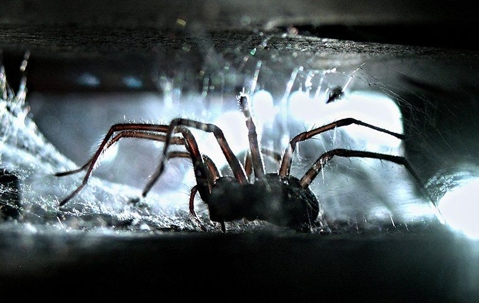Local spider control is your best friend, and that’s because local spider control can help you win the war against spiders with minimal interruption to your normal routine.
But why is it so important to manage and remove spider populations from your home? Well, that’s what we’re going to be talking about in today’s post. Beyond the whys, we’ll also explain some of the hows of spider removal in Corona as well as spider prevention that you can put to work in your home right away.
Think of these as strategies for winning the seemingly never-ending war against spiders. We humans have every possible advantage, and as long as you know what your enemy is capable of, you’ll be able to stay safe and, soon enough, claim victory.
Spider Behavior: How They Hunt, Feed, And Mate
Here, at the very start, let’s get into some of the core elements of spider behavior. Knowing a little about spider behavior can help you understand why they do what they do and how you can make your home less appealing to arachnids of all kinds.
Spiders hunt (most often) by building webs capable of trapping small insects and other small pests. They wait for their prey to become caught in the trap, and then they feed.
Next, what do spiders in Corona eat? Well, spiders eat any prey unlucky enough to get itself trapped in their webs.
Lastly, how do spiders mate? Spiders do reproduce, but not in the way you might be thinking. Male spiders put their sperm on a portion of webbing material and then put this webbing inside the female spider.
But when it comes to the very common fear of spiders, it’s more common for people to think about another aspect of spider behavior: spider bites.
Symptoms Of Spider Bites: What To Expect And How To Treat
In general, do spiders bite? We can safely say that, yes, spiders do bite. It would be slightly more accurate to say that spiders can bite. When the majority of spiders encounter a human being many times their size, their first instinct is not to bite but to run away.
However, this doesn’t mean that spider bites never happen. If you get too close to a spider, whether on purpose or by accident, then it could very well bite to try and protect itself.
Depending on the species of the spider, a bite can result in a variety of symptoms, including trouble breathing, nausea, a rash, a headache, or a swelling of the eyes.
The important thing here is to stay alert. You’re very likely to notice when you’ve been bitten by a spider. Following the bite, pay close attention to your health. If you notice sudden symptoms, seek medical help.
As for immediate treatment, try to clean the bite with soap and water and apply a cold compress. You can also use an antibiotic cream on the bite site to reduce the risk of an infection.
Preventing Spiders From Coming Inside: Effective Prevention Techniques
Let’s talk about how to prevent spiders from coming into your house in the first place. The following tips can help you keep your home sealed against spiders:
Monitor and manage other infestations of small insects like flies and ants.
Always put food away in sealed containers.
Clear spider webs as soon as you see them.
Remove clutter throughout the home.
Check dark and rarely used areas of the home regularly for signs of spiders.
It’s not difficult to put these tips into action, but they can go a long way toward preventing future spider problems.
Professional Spider Control: When To Call In The Experts
Prevention is helpful for keeping spiders away, but if you’re asking how to get rid of spiders, then professional control is the best option.
Reach out to a local, reliable pest control company to ask about the services they provide. You should also describe your current spider situation. From there, they can handle all the hard work.
If you’re searching for home pest control in Corona, feel free to contact Allied Pest Control at your earliest convenience.

